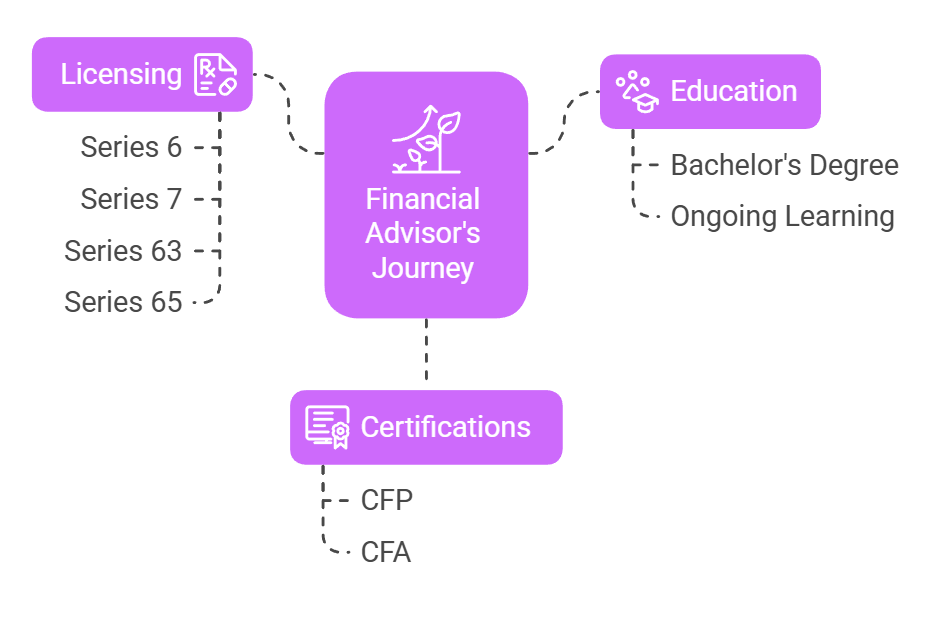
Why I Chose Financial Advisory Jobs for My Future
I remember the exact day I realized that financial advisory jobs were my perfect path forward. I’d spent months thinking about the future—where I could grow, how I could help others, and what would challenge me in exciting ways. Then it clicked: a career as a financial advisor checked every box. Today, I want to share the top reasons behind my choice and offer a glimpse of why this field makes my heart race.
Embrace Meaningful Impact
| I’ve always wanted to do work that transforms lives for the better. Financial advisory lets me help clients shape their legacies, secure comfortable retirements, and make big decisions with clarity. In fact, 33% of respondents in the 2024 Survey of Trends Report said their main motivation was helping others manage their finances and control their retirement (Kaplan Financial). That genuine impact on someone’s future is one of my strongest reasons for choosing this path. |  |
Enjoy Flexible Scheduling
 | Freedom over my calendar was a huge draw for me. Financial advisors often decide how and when to meet clients—some weekends, occasional evenings, or regular business hours. With the right level of effort, it’s possible to structure work around family, hobbies, or travel (Edward Jones Careers). If you value designing a work rhythm that fits your life, this career might feel like a dream come true. |
Tap Into Earning Potential
| I’m not shy about wanting to earn a solid living, and financial advisory roles can deliver. According to the Bureau of Labor Statistics, the median annual wage for personal financial advisors reached $102,140 in May 2024 (Bureau of Labor Statistics). Pay structures vary—some advisors charge flat fees, others earn commissions, while many adopt a blend—but that variety means I can shape how I earn based on my preferences and strengths. If you ever ask yourself where to find that sweet spot between job satisfaction and strong compensation, this field is worth exploring. |  |
Experience Ongoing Growth

I love learning, and financial advising is a never-ending education. Beyond a bachelor’s degree, advisors often pursue special certifications like the Certified Financial Planner (CFP) or Chartered Financial Analyst (CFA) to differentiate themselves (Accounting.com). Edward Jones, for example, includes structured training and support for new advisors (Edward Jones Careers). Whether I’m deep-diving into tax strategies or advanced portfolio management, there’s always new knowledge to gain and share.
Below is a quick look at common licenses an advisor might need:
| License | Primary Purpose | Managed By |
| Series 6 | Mutual funds, annuities | Financial Industry Regulatory Authority (FINRA) |
| Series 7 | General securities | FINRA |
| Series 63 | State securities laws | FINRA |
| Series 65 | Fee-based advising | FINRA |
I found it helpful to see licensing as a straightforward checklist: each license expands the kinds of services I can offer, allowing me to provide more comprehensive help. If you’re looking into your own license journey, you might want to see these financial broker license options so you’re prepared.
Stand Out With Fiduciary Advice
One aspect that excites me is the shift toward holistic, fiduciary-focused services. More people want advisors who prioritize the client’s best interests, rather than merely selling a product. As a fee-only advisor, I can concentrate on strategies that truly serve my clients—whether it’s cash flow management, investment planning, or financial consultancy services. If you need help choosing your own expert, you can check out the key steps to pick a financial advisor.
I frequently hear five big questions about financial advisory jobs—what degrees matter, licensing requirements, best ways to build a client base, how compensation really works, and whether it’s a good fit for career-changers—and I love explaining how flexible and rewarding this path can become.
Just starting out? You can explore how to become a financial advisor if you need the full scoop on required exams and certifications. For anyone wanting a role that combines personal growth, meaningful relationships, and financial independence, I wholeheartedly recommend this field. My journey is just beginning, but I already see how well it aligns with my passion for helping people and my ambition for achieving personal success. If you share that spark, you might find yourself equally captivated by financial advisory. Enjoy the ride!
Recent Posts
Financial Advisors in Los Angeles to Consider
Finding the right financial advisor can be a pivotal step...
Financial Advisors in New York to Consider
Selecting the right financial advisors in New York can play...





